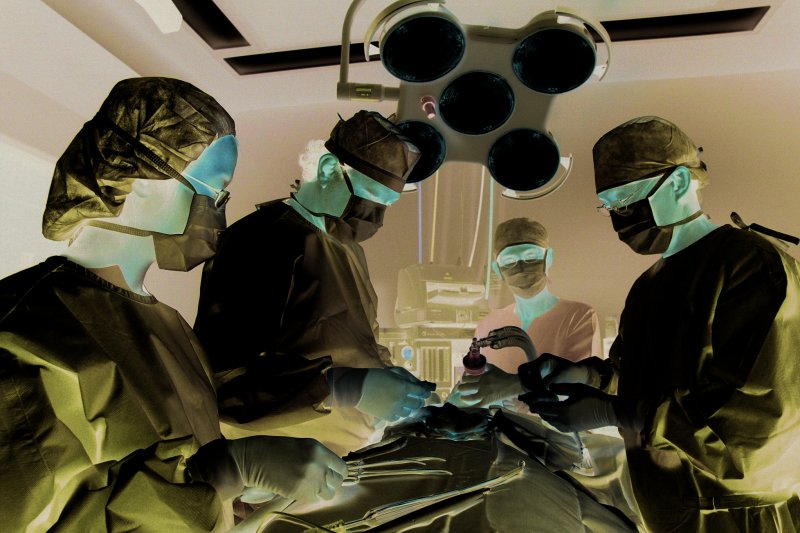Surgeons perform a kidney transplant. A new study suggests the procedure is safe for living donors. Photo by Tareq Salahuddin/
UPI
April 25 (UPI) -- The risk for major complications among living people who donate a kidney via laparoscopic surgery is "minimal," with fewer than 3% of living donors experiencing major complications, a study published Monday showed,
Among more than 3,000 living kidney donors assessed over a 20-year period, 2.5% experienced major complications, and all ultimately recovered completely, data published Monday by Mayo Clinic Proceedings showed.
None of the living kidney donors included in the study died as a result of the procedure, the researchers said.
"The results of this study are extremely reassuring for individuals who are considering being living kidney donors," study co-author Dr. Timucin Taner said in a press release.
"We found that this lifesaving surgery, when performed at experienced transplant centers, is extremely safe," said Taner, chair of the Division of Transplant Surgery at Mayo Clinic's William J. von Liebig Center for Transplantation and Clinical Regeneration in Rochester, Minn.
The findings are based on analysis of post-transplant outcomes among 3,002 living kidney donors who underwent laparoscopic living kidney donor surgery at the Mayo Clinic between Jan. 1, 2000, and Dec. 31, 2019.
The researchers tracked complications that occurred in donors up to 120 days after surgery, they said.
Among living donor participants, just over 12% had post-surgical complications, with most of them experiencing an infection or hernia related to the incision, the data showed.
Most of these complications occurred in the early years of the study, and more than three-fourths occurred after donors had been discharged, the researchers said.
Nine patients experienced bleeding complications during the procedure, according to the researchers.
Nearly 90,000 people in the United States are waiting for a life-saving kidney transplant, according to the Department of Health and Human Services.
Patients who receive a kidney from a living donor generally have a better prognosis, as living donor kidneys usually function longer than those from deceased donors, the researchers said.
Wait times for kidney transplants have remained long for more than 20 years, previous studies say.
In addition, they may have worsened during the COVID-19 pandemic, with some people reluctant to visit healthcare facilities over virus-related concerns, research indicates.
Surgeons have recently performed successful pig-to-human kidney transplants, which could help expand the donor pool.
"While this study reinforces the safety of this surgical procedure, it does highlight the importance of following up with the donors after donation," Taner said.
"That ensures any complications can be treated quickly without any long-term damage," he said.















